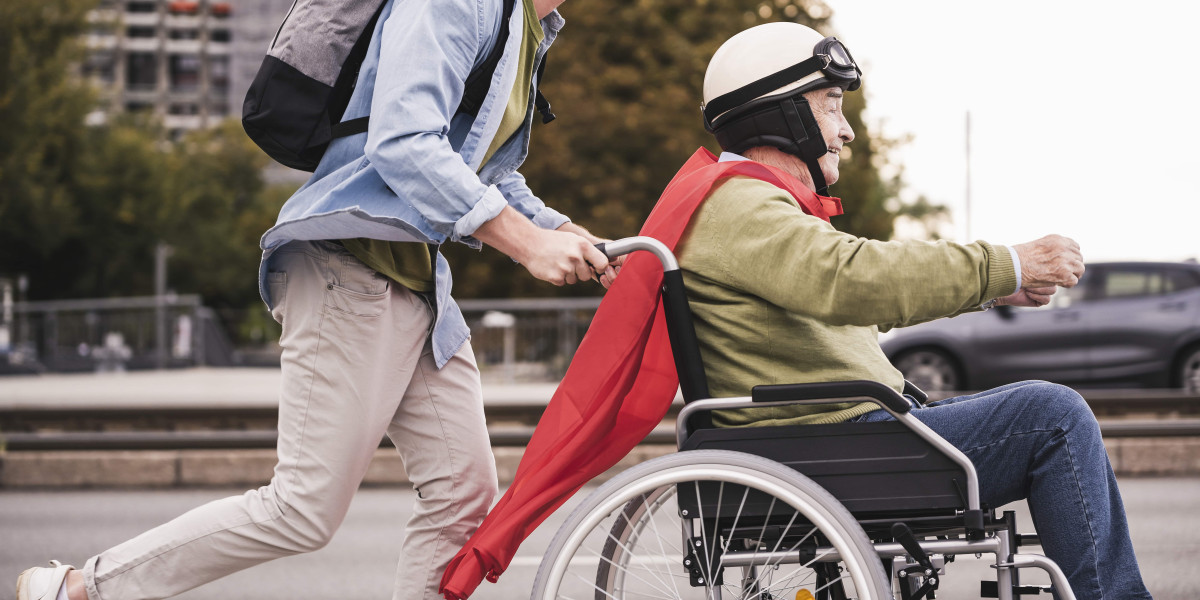Exploring Disability Scooters for Sale Near Me: A Comprehensive Guide
In the modern world, mobility help have ended up being significantly advanced and accessible, boosting the lifestyle for individuals with disabilities. Amongst these help, disability scooters stick out as a versatile and efficient service, offering freedom and self-reliance to those who may find conventional walking help restricting. This post explores the world of disability scooters, exploring how they work, the benefits they provide, and where to find them for sale near you.

What Are Disability Scooters?
Disability scooters, also called mobility scooters or electric scooters, are motorized cars created to help individuals with mobility concerns. These scooters are normally geared up with a seat, handlebars for steering, and a variety of features that enhance comfort and safety. They are powered by rechargeable batteries and can be used both indoors and outdoors, depending on the model.
Kinds Of Disability Scooters
Three-Wheeled Scooters
- Pros: More maneuverable in tight spaces, lighter and frequently easier to transport.
- Cons: Less steady on irregular surfaces, may feel less safe for some users.
Four-Wheeled Scooters
- Pros: Greater stability and balance, better for outdoor usage, specifically on rough surface.
- Cons: Less maneuverable in tight spaces, typically much heavier and harder to transfer.
Travel Scooters
- Pros: Designed for easy disassembly, making them ideal for travel.
- Cons: May have a much shorter range and lower speed compared to full-sized designs.
Heavy-Duty Scooters
- Pros: Built to support higher weight capabilities, often more durable and strong.
- Cons: Heavier and less portable, may require more upkeep.
Standing Scooters
- Pros: Provide an alternative for users who prefer or need to stand.
- Cons: Less typical, might not be as comfortable for long-term use.
Advantages of Disability Scooters
Boosted Mobility
- Disability scooters enable users to travel longer distances and browse various environments with ease, from supermarket to outdoor parks.
Increased Independence
- By reducing the need for assistance, these scooters empower users to maintain their independence and carry out day-to-day activities more conveniently.
Enhanced Quality of Life
- Scooters can significantly improve social and leisure activities, allowing users to participate in neighborhood occasions and maintain a more active way of life.
Cost-Effective
- Compared to other mobility help like power wheelchairs, scooters are frequently more affordable and have lower maintenance costs.
Adjustable
- Numerous scooters featured options for modification, consisting of adjustable seats, speed settings, and additional safety features.
Where to Find Disability Scooters for Sale Near Me
When trying to find disability scooters for sale, there are several alternatives offered to ensure you discover the right fit for your requirements.
Regional Mobility Aid Stores
- Pros: Opportunity to evaluate drive and see the scooters face to face, well-informed personnel for individualized suggestions.
- Cons: Limited selection compared to online stores, may be more expensive due to overhead expenses.
Online Retailers
- Pros: Wide range of models and brands, typically more competitive pricing, convenience of shopping from home.
- Cons: Can not check drive before acquiring, prospective shipping costs and delays.
Specialty Dealers
- Pros: Specialized in mobility aids, frequently use extended warranties and funding options.
- Cons: May be more expensive, less physical areas.
Second-Hand Markets
- Pros: Affordable choices, opportunity to examine and test the scooter before buying.
- Cons: Limited guarantee, may need maintenance or repairs.
What to Consider When Buying a Disability Scooter
User Needs and Abilities
- Physical Condition: Consider the user's strength, dexterity, and stability.
- Way of life: Think about where the scooter will be utilized most often (inside your home, outdoors, both).
Scooter Features
- Range and Battery Life: Ensure the scooter can handle the distances you need to take a trip.
- Speed and Maneuverability: Choose a scooter that matches your speed choices and the areas you navigate.
- Weight Capacity: Verify that the scooter can support the user's weight.
- Storage and Transport: If you need to transport the scooter, look for designs that are lightweight or easy to take apart.
Safety and Comfort
- Braking System: Check for dependable and responsive brakes.
- Seating: Opt for a comfy and adjustable seat.
- Lighting and Accessories: Consider functions like headlights, turn signals, and baskets for added benefit.
Budget plan and Financing
- Initial Cost: Compare rates from various sellers.
- Maintenance Costs: Factor in the expense of batteries, repair work, and regular upkeep.
- Financing Options: Some dealers offer funding or lease-to-own programs.
Guarantee and Support
- Guarantee: Look for a thorough service warranty that covers both parts and labor.
- Customer Support: Ensure the merchant offers trustworthy client service and assistance.
Frequently Asked Questions About Disability Scooters
Q: Are disability scooters covered by insurance?
- A: Many insurance coverage policies, consisting of Medicare, can cover a part of the expense of a disability scooter. Nevertheless, protection varies, so it's vital to contact your provider for specific details and requirements.
Q: How often do I require to charge the battery?
- A: The frequency of battery charging depends upon the design and usage. Typically, you need to charge the battery after each usage or a minimum of once a week if the scooter is not used daily.
Q: Can I utilize a disability scooters for sale Near me scooter on public transportation?
- A: Yes, many disability scooters are developed to be transportable and can be utilized on public transport, such as buses and trains. However, it's a great concept to inspect the particular rules and policies of your regional transit authority.
Q: Are there any age restrictions for using disability scooters?
- A: There are no stringent age restrictions, however users need to be able to operate the scooter safely. Lots of scooters are developed for older adults, however they can be utilized by anybody who needs support with mobility.
Q: Can I customize a disability scooter to fit my particular needs?
- A: Many scooters use personalization alternatives, such as adjustable seats and speed settings. For more comprehensive adjustments, it's best to talk to a professional mobility aid supplier.
Tips for Buying a Disability Scooter
Research Thoroughly
- Read Reviews: Look for evaluations from other users to get a sense of the scooter's performance and reliability.
- Compare Models: Consider various models and brand names to find the one that best satisfies your requirements.
Test Drive Before Buying
- If possible, test drive the scooter to guarantee it feels comfortable and meets your requirements.
Ask for Professional Advice
- Seek advice from with a doctor or mobility aid specialist to get tailored suggestions.
Examine for Local Incentives
- Some city governments and organizations offer incentives or aids for buying disability scooters. Talk to your regional disability services to learn more.
Consider Future Needs
- Consider any possible changes in your physical condition that may affect your scooter requires in the future.
Disability scooters are a valuable tool for improving mobility and self-reliance for people with specials needs. By considering the user's requirements, the features of the scooter, and the offered alternatives for purchase, you can discover the ideal scooter to suit your way of life. Whether you're shopping at a local store or searching online, taking the time to research study and test drive different models will ensure you make an informed and helpful decision. With the best scooter, the world ends up being a more accessible and satisfying place.
Additional Resources
- Mobility Aid Providers: Check regional listings for providers concentrating on disability scooters.
- Online Reviews: Websites like Consumer Reports and mobility aid forums offer in-depth reviews and user feedback.
- Federal government Programs: Look into local and nationwide programs that offer financial help for mobility aids.
By exploring these resources and following the suggestions detailed in this short article, you can confidently find and purchase a disability scooter that fulfills your particular requirements and boosts your daily life.








